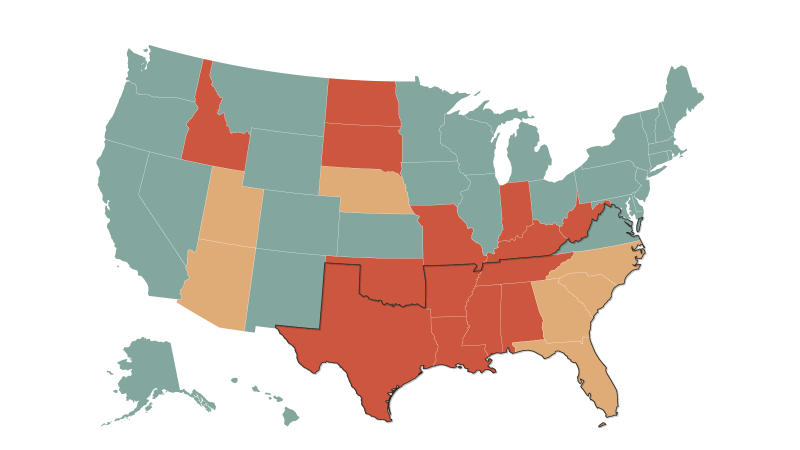In the 16 months since the Supreme Court overturned Roe v. Wade, all states across the South have restricted or banned abortions except one: Virginia.
On Tuesday, Virginia voters will decide who will control the state legislature, which is currently divided between Republicans and Democrats each controlling one chamber. If Republicans win full control of the legislature, it would pave the way for Republican Gov. Glenn Youngkin to push through a conservative agenda, including restrictions to abortion.
Youngkin has said he would sign legislation to outlaw abortions after 15 weeks, with exceptions for rape, incest and the life of the mother. The current Democratic majority in Virginia’s state senate has already blocked an attempt at such a restriction earlier this year.
Outlawing abortion at 15 weeks or earlier would mean residents of southern states seeking the procedure after this point would be funneled into clinics in states even further away. Bans or restrictions in all the southern states would also mean denying or restricting access to more than 110 million Americans, or one third of the entire country’s population, and seven of the 10 fastest-growing cities. CNN defines southern states here as the states that seceded during the Civil War, which while a popular definition is not how the US Census defines the South.
Ads run by Youngkin’s Spirit of Virginia PAC have been careful not to include “banning abortion” language.
“Here’s the truth: There is no ban,” a woman says in a Youngkin ad. “Virgnia Republicans support a reasonable 15-week limit.”
Abortion in the state is currently legal through the second trimester, or 26 weeks, with some rare exceptions in the third trimester. But without Roe v. Wade or explicit protection under state law, Republican legislation could end or limit access to the procedure.
In 2021, Republicans won the governor and attorney general races plus a narrow 52-48 majority in the House of Delegates. Democrats, who previously controlled both the legislature and governorship, were left with a 22-17 majority in the State Senate.
Read the full article here





